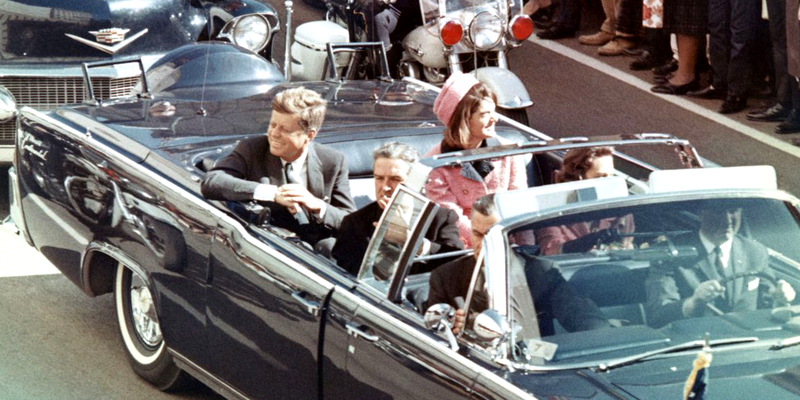Politics
BREAKING: JFK Assassination Witness Breaks Silence, Raises Bombshell New Questions

Paul Landis, one of the Secret Service agents who was on duty when President John F. Kennedy was assassinated on November 22, 1963, has come forward with a new accounting of events that questions the widely accepted narrative.
Landis, 88, said he has no ulterior motives in coming forward and merely wants the American public to come up with their own conclusions. The former Secret Service agent’s upcoming memoir is expected to cast doubt on the “magic bullet theory,” which was advanced by the Warren Commission after an investigation of the assassination.
The Warren Commission concluded that that one of the bullets fired at Kennedy’s motorcade struck the president from behind, exited from the front of his throat then proceeded to strike Texas Governor John Connally multiple times. Connally somehow sustained injuries to his chest, back, wrist and thigh from the same bullet, the commission claimed. Thus, the term “magic bullet” was popularized due to the bizarre oath one bullet supposedly took.
Investigators stated that the bullet was recovered from a stretcher that was believed to have held Connally at Parkland Memorial Hospital in Dallas. Landis — who was never interviewed by the Warren Commission — has a different story, however.
Landis claims that he found the “magic bullet” not at the hospital, but in the presidential limousine. When he spotted the bullet, he grabbed it and, for reasons that remain unclear even to him, placed the bullet on the stretcher in hopes that doctors could use it to help Kennedy. At some point, Landis believes, the two stretchers were pushed together, causing the bullet to shake from one to the other.
“There was nobody there to secure the scene, and that was a big, big bother to me,” Landis told the New York Times. “All the agents that were there were focused on the president.”
“This was all going on so quickly. And I was just afraid that — it was a piece of evidence, that I realized right away. Very important. And I didn’t want it to disappear or get lost,” Landis said. “So it was, ‘Paul, you’ve got to make a decision,’ and I grabbed it.’”
Landis theorizes that the bullet struck Kennedy, but for whatever reason, it was undercharged and failed to penetrate deeply.
The former Secret Service agent has avoided speculation over the larger implications of his account. He has always believed that Lee Harvey Oswald was the lone gunman, though he has started to question that conclusion. “At this point, I’m beginning to doubt myself,” he said. “Now I begin to wonder.”
JFK assassination witness breaks his silence and raises new questions https://t.co/2WZHN4zc9w
— The Boston Globe (@BostonGlobe) September 10, 2023

